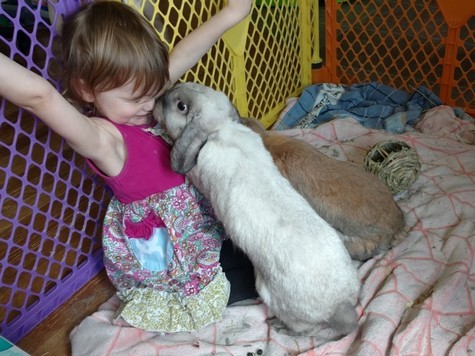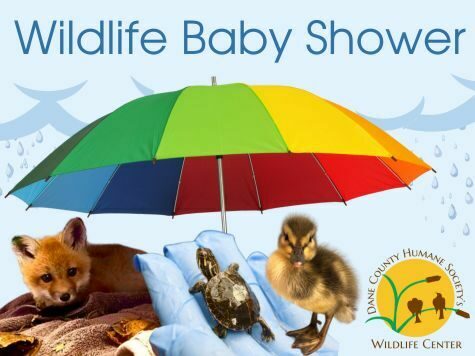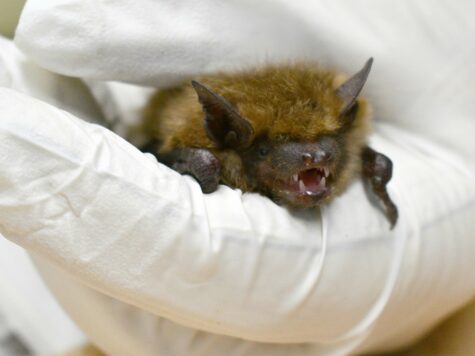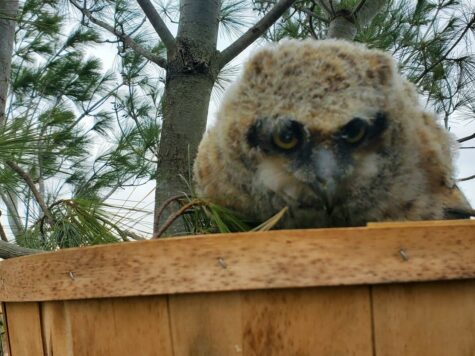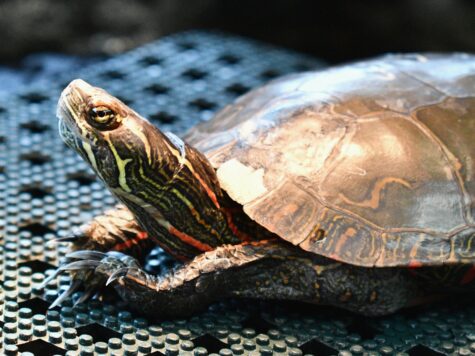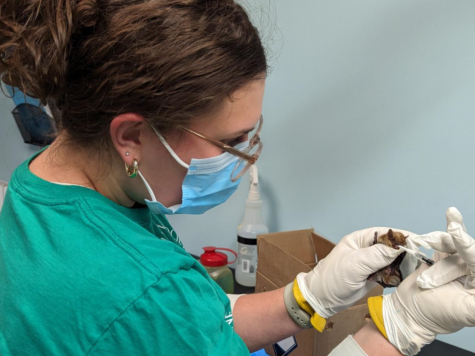Princess and Darlene were two rabbits surrendered to DCHS this past August after their previous owner could no longer care for them. At less than two years old, these bonded lop ladies were looking for a home where they could stay together and get plenty of love and attention.
After a nearly six-month stay with DCHS, Darlene and Princess finally found their perfect, critter-loving family while staying at one of our Mounds Pet Food Warehouse Satellite Adoption Centers.
Mariska and Joeseph had opened their homes to DCHS animals in need before. Two dogs and six rats had already become part of the family, and they were ready to add a pair of rabbits as well! They met with them at Mounds Pet Food Warehouse and were instantly smitten with these sweet sisters.
Princess and Darlene are now living the high life with their new family. They have a hopping new pad – a huge enclosure with hideaway houses to help them feel secure, soft blankets and all the toys they could ever want, as well as lots of supervised run time to explore their bunny-safe home! They have a healthy buffet of fresh vegetables, pellets and hay supplied daily. They even earn the occasional treat of a carrot or yogurt drops.
“They are doing absolutely wonderful and are loving their new home,” says Mariska. “They're such big sweethearts, and have warmed up to all of us very quickly. Our daughter has really bonded with them. She always wants to be with them, and they seem to feel the same way. They climb on her lap, eat from her hand, come over for pets - all kinds of fun times to be had.”
Darlene and Princess have also come out of their shell, showing off their sass and personalities now that they are happy and comfortable where they belong. They have made friends with the two large dogs in the house and love to spend their time cuddling with each other, eating and looking adorable.
“They are just so, so sweet,” say Mariska and Joseph. “They are part of the family, for sure. We hope they'll be with us for many, many years to come.”
DCHS is able to create thousands of storybook endings like this because of strong supporters like you! We are grateful for your support and all you’ve done to help provide care and compassion for animals in need.
Donate today and have your gift make DOUBLE the impact for animals in need thanks to our largest matching gift ever of $30,000!
Thank you for your patience! Due to all the wonderful generosity this Giving Tuesday, our donation form below may take a minute or two to load.
